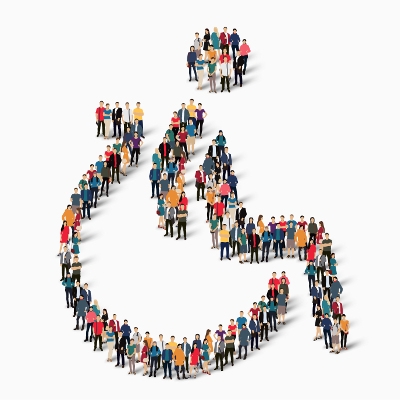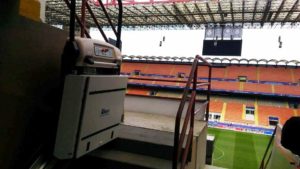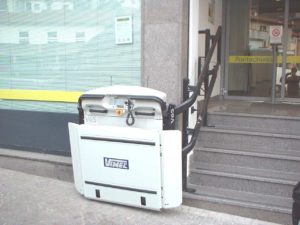In recent years, the issue of accessibility has become increasingly important, and this has increased the need to ensure the complete accessibility of public places and buildings, such as museums, exhibition venues, theatres, monuments, tourist attractions, etc.
When we think of architectural barriers, we usually think of steps, uneven flooring, and anything else that might pose a physical obstacle for people in wheelchairs or with mobility problems; we rarely realise, however, that there are also other types of “barriers” that people with disabilities have to face everyday.
These barriers depend upon the awareness of the community itself, which often doesn’t fully understand the needs of people with disabilities.
The aim of creating a culture of accessibility is not only to render every place accessible to all, but also to provide instructions on the right way to handle each type of disability, and to raise awareness of what each of us can do every day to help make people with disabilities feel like they’re an integral part of our communities.
One excellent example is provided by the City of Milan, which in recent years has sought to
www.milanopertutti.it), especially to tourists with disabilities, even by launching a website dedicated to accessible tourism (www.milanopertutti.it), where people with disabilities can find all the information needed to visit the city without any limitations.
Numerous places of interest have been rendered accessible to everyone. For example, a Vimec V64 platform stairlift has now been installed at the San Siro Stadium. Many public offices also have platform lifts for people with disabilities, such as the V65 stairlift present at the Pontechiasso post office.
The city has also created an e-learning platform for all those who work in direct contact with the public, and therefore need to receive training with regard to accessibility and the accommodation of people with disabilities: www.milanoaccogliente.it.
This website provides free online courses for people operating in the tourism and social services sectors, such as restaurant managers, taxi drivers, travel companions, welfare workers, etc.; the courses explain how to interact with people based on their type of disability, with particular attention being placed upon the needs associated with the various disabilities themselves.
It’s a concrete form of assistance for everyone, and represents one more step towards a world that’s completely accessible to everyone!





